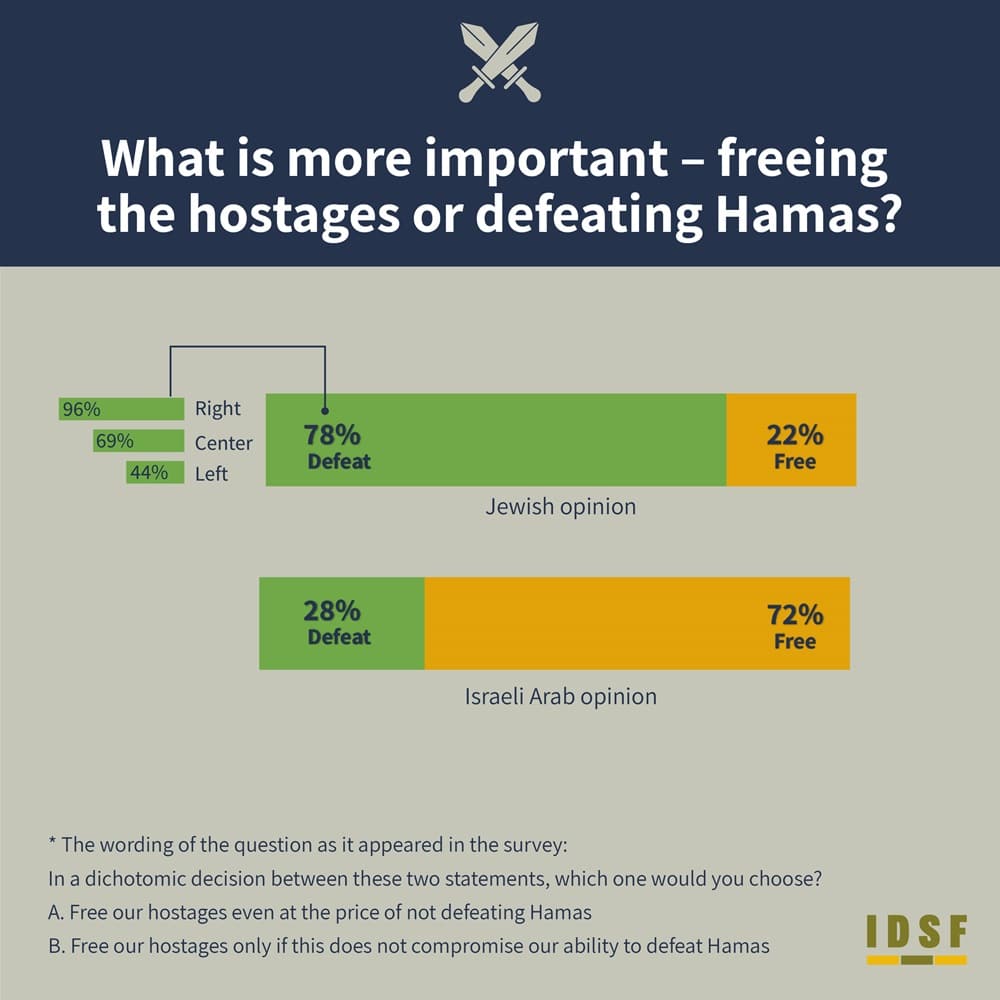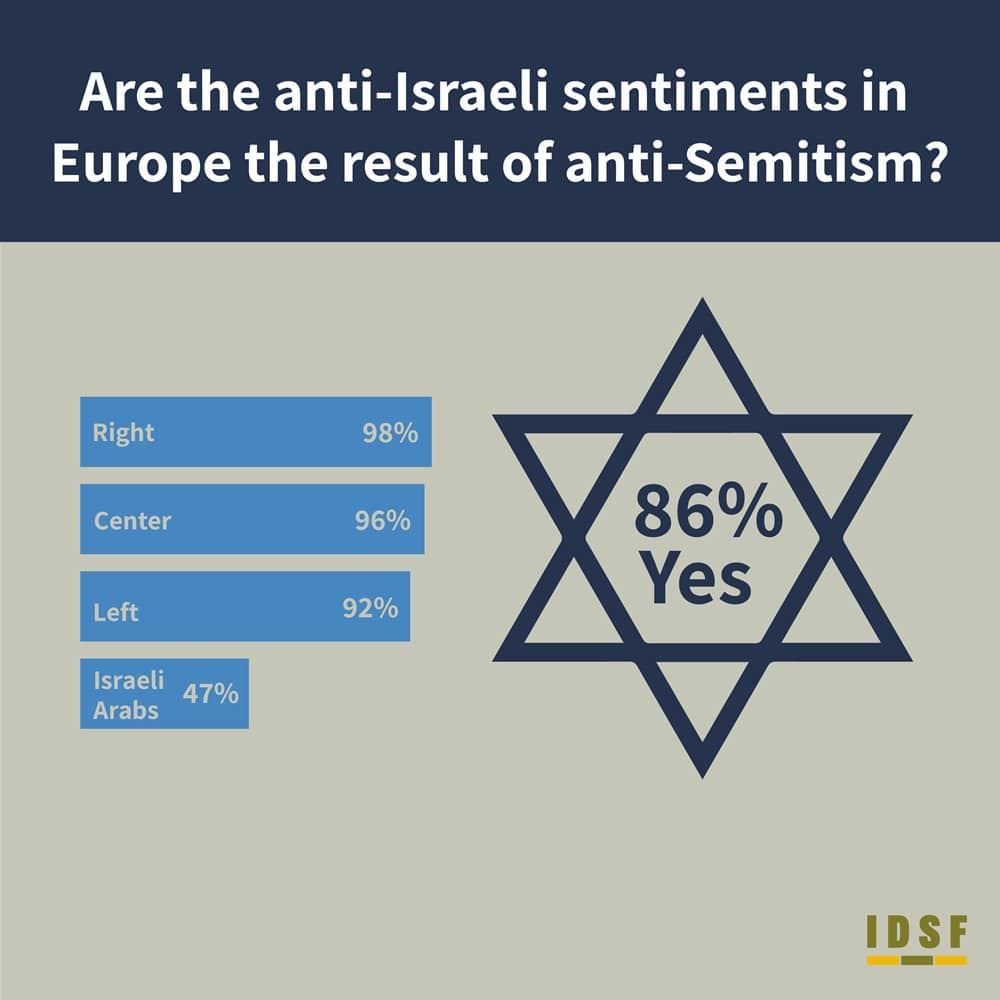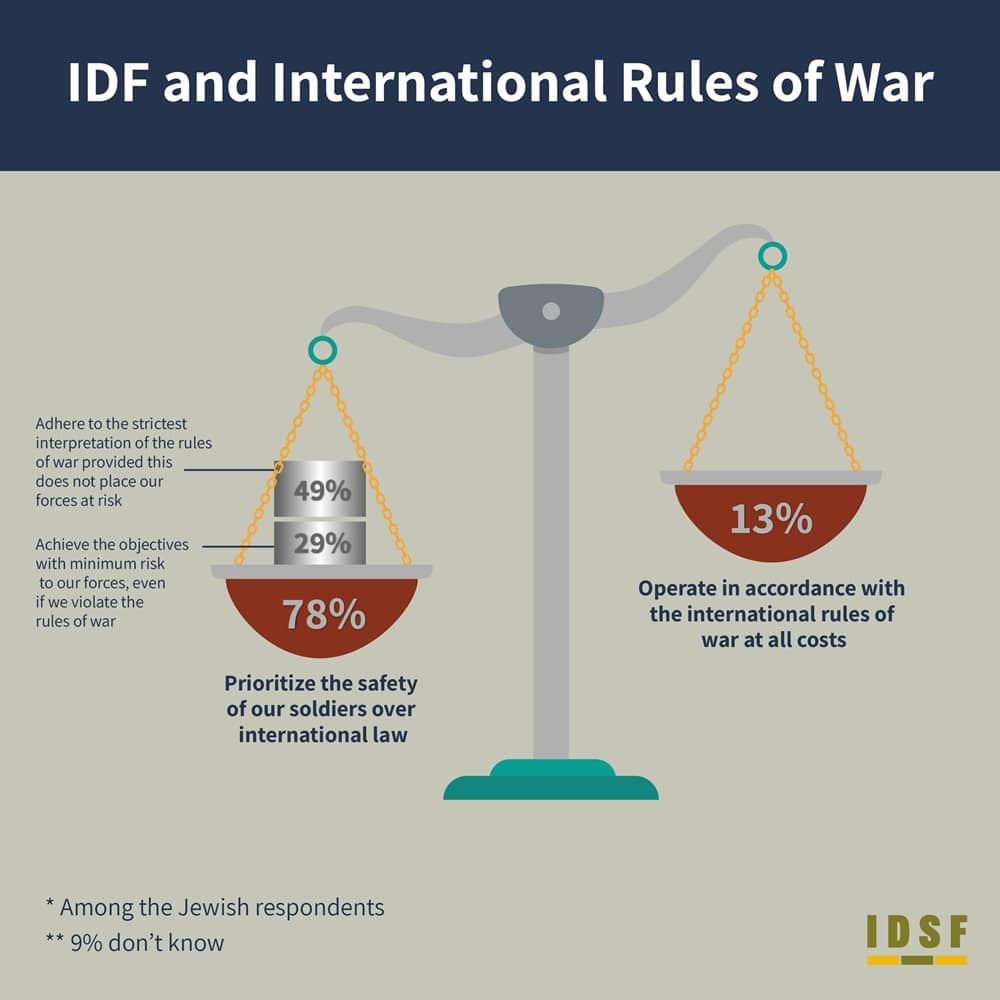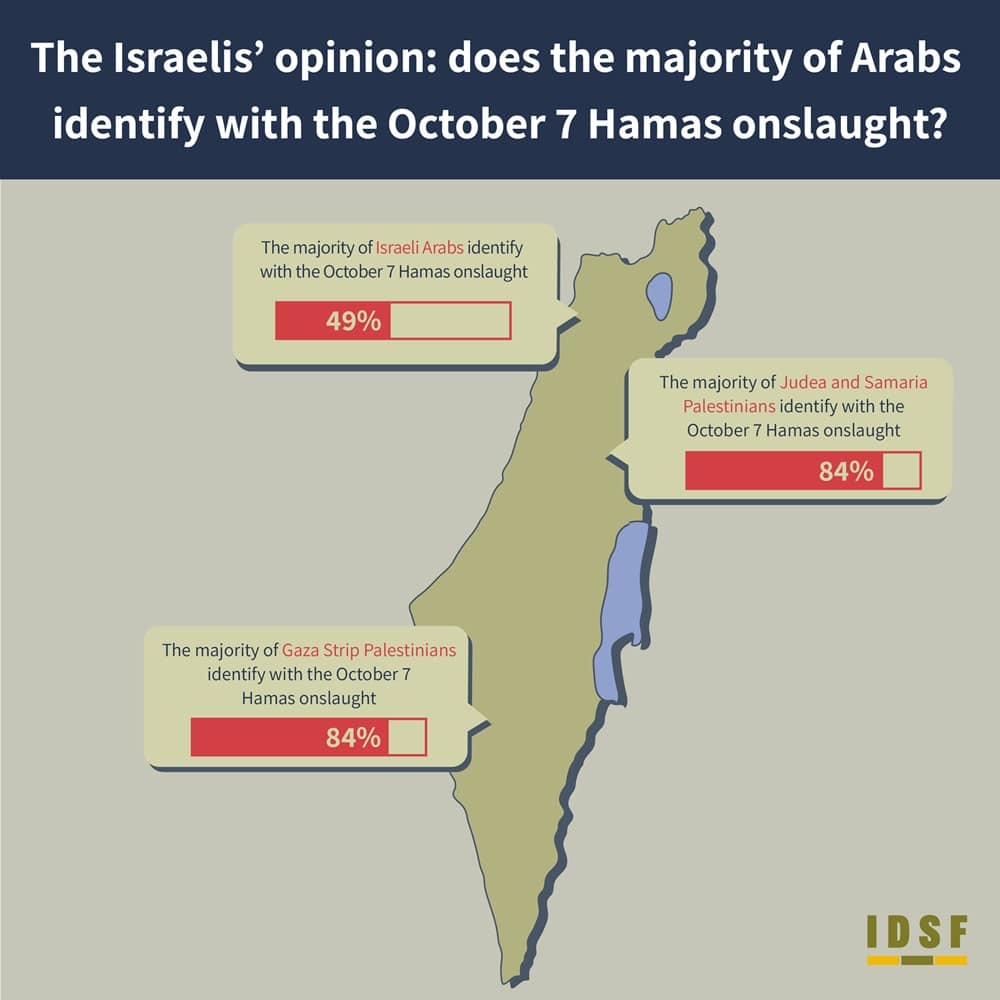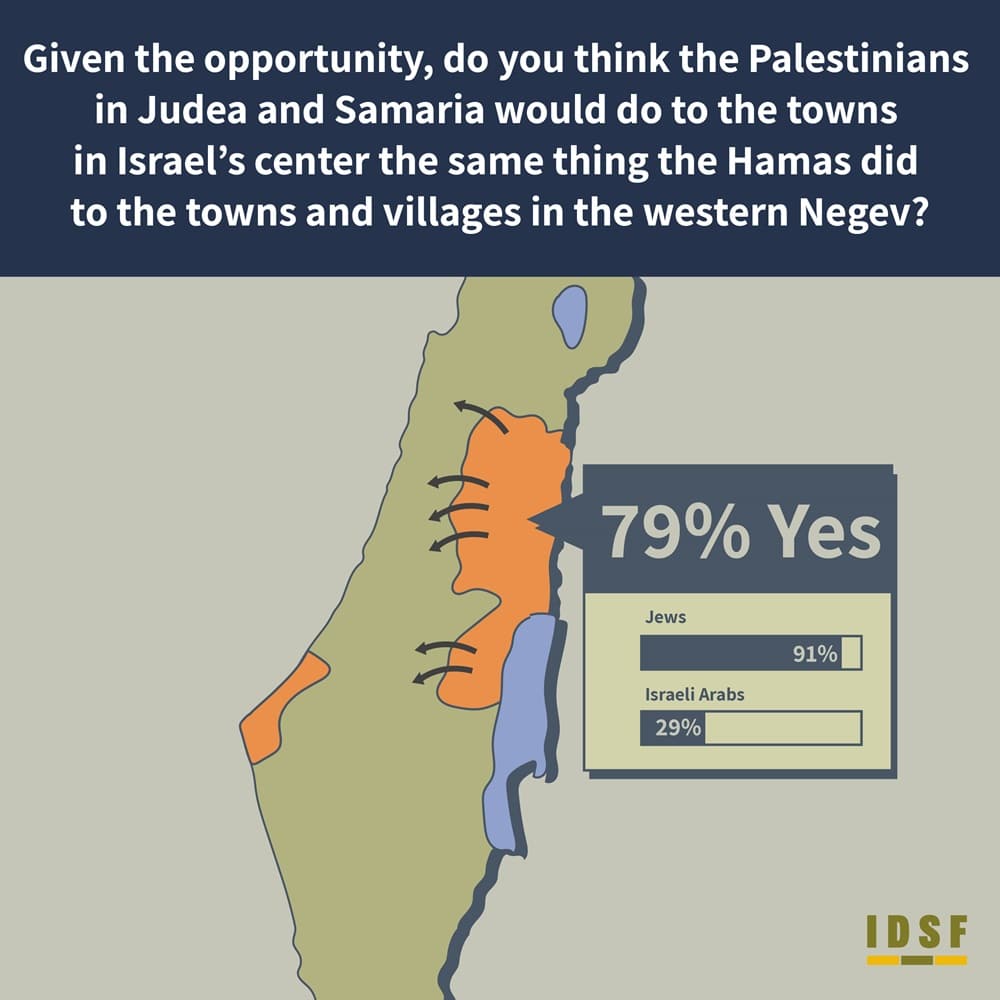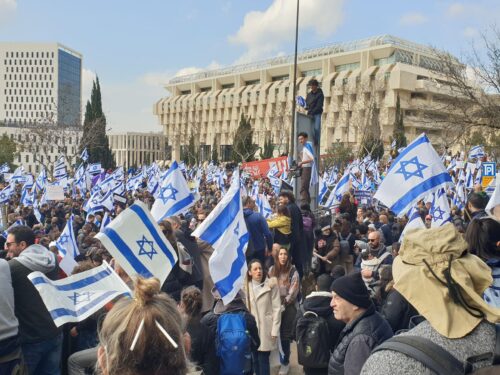The “IDSF Index” is a qualitative and quantitative study being carried out by our research department on a quarterly basis. It examines Israeli public opinion on security- and society-related issues. This time, we examined what the Israeli public thinks about the circumstances that brought about the October 7 attack, its opinion about the current state of affairs, about the goals of the war, and about the lessons to be learned from October 7.
In the first article in the series we dealt with the various reasons that led to the October 7 catastrophe. In this article we deal with the second part of the survey: the current state of affairs given the Swords of Iron War, including the war’s objectives, global public opinion, and concepts within the Arab public in Israel.
The survey was conducted during January 2024 with statistical support from Dr. Hagay Elkayam. 1,156 respondents were surveyed – adult (over 18 years of age) Internet users in Israel, and has been reviewed to ensure fair representation in terms of age, gender, nationality, religion, and political affiliation.
For the Jewish combined sample (1,156 respondents) the maximum sampling margin of error is ±3% with a 95%; probability. For the Jewish sample (919 respondents) the maximum sampling margin of error is ±3.5% with a 95 probability; for the Arabic survey (237 respondents) the maximum sampling margin of error is ±6.5% with a probability of 95%.
Freeing the hostages versus defeating Hamas: Public opinion on the war’s objectives
At the very outset of the war, the State of Israel declared its two main goals: to return the Israeli hostages and to topple the Hamas regime. One of the key dilemmas occupying Israeli public opinion is which of these objectives takes precedence. Or in other words, if the State of Israel reaches a situation in which it can only achieve one of these two objectives, which one will it be?
Accordingly, we asked the respondents to provide a dichotomic ruling between the following two statements: (1) The hostages should be freed even at the price of not defeating Hamas; (2) the hostages should be freed only provided their release will not impair the ability to topple Hamas.
The result is unequivocal: 68% of the respondents chose the statement in which defeating Hamas is the main objective, while 32% placed freeing the hostages as the main objective. Breaking down the results by nationality shows a significant difference between the Jewish public and the Israeli Arab public. 78% of the Jewish public believe the hostages should be freed even at the price of not defeating Hamas; among the Arabs the situation is reversed: 72% believe the hostages should be freed even at the price of not defeating Hamas.
Ideological segmentation of the Jewish public shows substantial differences between the right, left, and center. 89% of the respondents identifying themselves as right-wingers chose the statement according to which the hostages should be freed even at the price of not defeating Hamas and 69% of the centrists also chose this statement. Among the respondents identifying themselves as left-wingers, only 44% chose this statement. The rest chose the statement according to which the hostages should be freed at any cost.
Israel versus the world: Anti-Israelism, anti-Semitism, and the allegations of war crimes
The Swords of Iron War is being fought in the Gaza Strip, but is not confined to it. Ever since the outbreak of the war, the international arena is in tumult. Anti-Israel demonstrations are a daily occurrence in various countries, anti-Semitic slogans are being heard in the most prestigious university campuses, and at the International Criminal Court in the Hague, the question of whether or not Israel is committing war crimes is still being debated.
The respondents were asked to state their opinion on the way the world perceives Israel. They were also asked about their position regarding international law when it comes up against the needs of the IDF in the field.
Regarding the anti-Israeli sentiments in Europe, when asked whether they believe these are due to anti-Semitism, 84% of the respondents in the integrated sample gave a positive answer. When examining the ideological segmentation between right, center and left, there is a consensus: 97% of all Jews believe the anti-Israeli opinions are due to anti-Semitism. However when segmented by nationality, only 48% of all Israeli Arabs agree with this statement.
The question of international law also produced some interesting results. The respondents were asked to state to what extent, in their opinion, should the IDF adhere to the international rules of war in its activities. 13% of the Jewish respondents believe the IDF should comply with the rules of war in any situation, however 78% think otherwise. Those 78% can be divided into two groups: 29% believe the IDF should conduct itself according to the most stringent interpretation of the international rules of war – as long as this does not endanger our forces. 49% believe the IDF should accomplish its goals with minimum risk to our forces – even if to do so would mean failure to comply with the rules of war.
In favor or not in favor? What Israelis think about the Arab public opinion in Israel, in Judea and Samaria and in Gaza
Following the Hamas terrorist onslaught on October 7, many Israelis began wondering what Arab public opinion about the onslaught was in Judea and Samaria, in Gaza and also inside Israel. In the survey, we asked the respondents whether or not they think the Arabic public identifies with the onslaught. The Arab population was divided into three regions: Gaza, Judea and Samaria and the Israeli Arabs.
The results show that 84% of all Israelis believe that the Arabs in Gaza and also the Arabs in Judea and Samaria identify with the terrorist onslaught. Regarding the Israeli Arabs, 49% of the respondents believe that they too identify with the onslaught.
The survey also examined the question of whether a terrorist onslaught of the type perpetrated on October 7 could occur in a situation in which the Palestinian Authority ruled the Gaza Strip instead of Hamas. 70% of the respondents in the integrated sample believe that such an onslaught could indeed occur also under Palestinian Authority rule in the Strip.
The respondents were also asked whether they believe the Palestinian Authority would be capable of committing, in the center of the country, what Hamas committed in the western Negev. Here the results were unequivocal: 79% of all respondents, and 91% of the Jewish respondents, believe the Palestinian Authority would be able to act the same way Hamas had acted, given the opportunity.
These data show that the Israeli public perceives the Palestinian Authority as an enemy no different than Hamas in all matters concerning aggressive intentions against Israel.
“The survey results prove that the Israeli public understands the objectives of the war very well and regards the toppling of Hamas to be the overriding objective”, says Brigadier-General (Res.) Amir Avivi, Chairman of the IDSF. “The public also realizes that the Palestinian Authority is part of the problem, not part of the solution. Allowing the Authority to function as a governing entity means a return to October 6.”
In our next article, we shall continue to examine the survey results, we will examine what the public thinks about the day after the war, and how it believes the future Gaza Strip should be governed.

